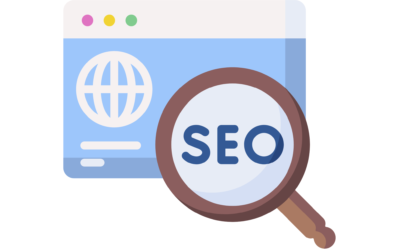A Guide to Enterprise SEO in 2024
Unlike smaller businesses, enterprises face unique challenges and opportunities in the SEO arena due to their size, complexity, and scale of operations.
Decoding the Complex World of Enterprise SEO
Enterprise SEO refers to the strategies and practices employed to improve the organic search visibility of large-scale websites with thousands or even millions of pages.
It involves a comprehensive approach that encompasses technical SEO, content strategy, link building, local SEO, and more.
The goal is to ensure that every aspect of the website is optimized to rank highly in search engine results, thereby driving significant organic traffic and achieving business objectives.
Differences Between Traditional SEO and Enterprise SEO
While traditional SEO and enterprise SEO share common principles, the scale and complexity differentiate the two.
Traditional SEO typically focuses on optimizing smaller websites with fewer pages and a limited geographic reach. In contrast, enterprise SEO deals with large websites that may have multiple domains, international presence, and extensive content libraries.
Key differences include:
- Scale: Enterprise SEO must manage optimization efforts across a vast number of pages, which requires robust tools and systems.
- Integration: Coordination across various departments (IT, marketing, content, and sales) is essential for seamless implementation.
- Automation: Given the scale, automation tools are often necessary to handle repetitive tasks efficiently.
- Customization: Enterprise SEO strategies must be tailored to accommodate different regions, languages, and markets, requiring a more nuanced approach.
Key Components of Enterprise SEO
Technical SEO
Technical SEO forms the backbone of any effective SEO strategy, especially for large-scale websites. It involves optimizing the website’s infrastructure to ensure that search engines can easily crawl, index, and render pages. Key aspects include:
- Site Architecture: Ensure a logical structure with a clear hierarchy and easy navigation.
- Page Speed: Optimize loading times by compressing images, leveraging browser caching, and minimizing JavaScript.
- Mobile-Friendliness: Implement responsive design to ensure the site performs well on all devices.
- XML Sitemaps: Submit sitemaps to search engines to facilitate better indexing.
- Robots.txt: Manage the crawling and indexing of site pages.
Content Strategy
A robust content strategy is essential for attracting and engaging visitors. This involves:
- Keyword Research: Identify and target high-value keywords relevant to your industry.
- Content Creation: Produce high-quality, valuable content that meets user needs and search intent.
- Content Updates: Regularly update and refresh content to maintain its relevance and accuracy.
- Content Distribution: Utilize various channels, including blogs, social media, and email newsletters, to distribute content.
Link Building

Local SEO
For enterprises with multiple locations, local SEO is crucial. This involves:
- Google My Business: Optimize listings for all locations.
- Local Citations: Ensure consistent NAP (Name, Address, Phone number) across all directories.
- Localized Content: Create content tailored to specific geographic areas.
Mobile Optimization
With the increasing use of mobile devices, optimizing for mobile is essential. Key practices include:
- Responsive Design: Ensure the site adapts to various screen sizes.
- Mobile Page Speed: Focus on optimizing load times for mobile users.
- Mobile-First Indexing: Prioritize mobile optimization since Google predominantly uses the mobile version of the content for indexing and ranking.
Best Practices for Enterprise SEO in 2024
Leveraging AI and Machine Learning
Artificial intelligence and machine learning are revolutionizing SEO by providing deeper insights and automation. Tools powered by AI can analyze user behavior, predict trends, and automate repetitive tasks, enhancing the efficiency and effectiveness of SEO strategies.
Importance of E-A-T (Expertise, Authoritativeness, Trustworthiness)
Google’s emphasis on E-A-T means that content must demonstrate expertise, authoritativeness, and trustworthiness. To which another E was added – for Experience. This is particularly important for YMYL (Your Money or Your Life) sites, such as those in the health, finance, and legal sectors. Ensure that content is well-researched, authored by experts, and supported by credible sources.
Focus on User Experience (UX)
User experience is a significant ranking factor. A positive UX can reduce bounce rates and increase dwell time. Focus on intuitive navigation, fast loading times, mobile responsiveness, and engaging content to enhance UX.
Integration of Voice Search Optimization
With the rise of voice-activated devices, optimizing for voice search is becoming crucial. Focus on natural language processing and long-tail keywords that match conversational queries. Ensure that content answers common questions clearly and concisely.
Enhancing Core Web Vitals
Core Web Vitals are a set of metrics related to speed, responsiveness, and visual stability. These include:
- Largest Contentful Paint (LCP): Measures loading performance.
- First Input Delay (FID): Assesses interactivity.
- Cumulative Layout Shift (CLS): Evaluates visual stability.
Improving these metrics can significantly boost your site’s ranking and user experience.
Challenges in Enterprise SEO
Managing Large Websites
Large websites with numerous pages can be challenging to manage. It requires robust tools to monitor performance, identify issues, and ensure consistent optimization across all pages.
Coordinating Across Departments
Enterprise SEO often involves collaboration between multiple departments, such as IT, marketing, and content teams. Effective communication and coordination are essential to implement SEO strategies seamlessly.
Keeping Up with Algorithm Changes
Search engine algorithms are constantly evolving. Staying updated with the latest changes and adapting strategies accordingly is crucial for maintaining and improving search rankings. Regular training and engagement with the SEO community can help stay ahead of these changes.
Measuring SEO Success
Key Performance Indicators (KPIs) to Track
Measuring the success of your SEO efforts requires tracking specific Key Performance Indicators (KPIs). The most important KPIs for enterprise SEO include:
- Organic Traffic: The number of visitors coming to your website through search engines. This indicates the effectiveness of your SEO strategies in driving traffic.
- Keyword Rankings: Track the positions of your target keywords in search engine results pages (SERPs). Improvements in rankings suggest that your SEO efforts are working.
- Click-Through Rate (CTR): The percentage of people who click on your link after seeing it in search results. A higher CTR indicates that your title and meta description are compelling.
- Bounce Rate: The percentage of visitors who leave your site after viewing only one page. A lower bounce rate suggests that visitors are finding relevant content and are engaged.
- Conversion Rate: The percentage of visitors who complete a desired action, such as making a purchase or filling out a form. This measures the quality of traffic driven by SEO.
- Backlinks: The number and quality of inbound links to your site. More high-quality backlinks generally lead to better rankings.
- Page Load Time: The time it takes for a page to load. Faster load times improve user experience and can positively impact rankings.
- Core Web Vitals: Metrics such as Largest Contentful Paint (LCP), First Input Delay (FID), and Cumulative Layout Shift (CLS) are critical for assessing page performance.
Best Enterprise SEO Tools for 2024
As SEO continues to evolve, having the right tools is essential for staying ahead of the competition and managing large-scale SEO efforts efficiently. Here are the top enterprise SEO tools for 2024, offering cutting-edge features to help you optimize your website, analyze performance, and drive organic growth.
Ahrefs
Features and Benefits: Comprehensive backlink analysis, keyword research, rank tracking, site audits, and competitor analysis.
Pricing and Availability: Plans start at $99 per month, with higher-tier plans offering more extensive features and data.
SEMrush
Features and Benefits: All-in-one tool for keyword research, site audits, rank tracking, competitive analysis, and content marketing insights.
Pricing and Availability: Plans start at $119.95 per month, with various packages tailored to different business needs.
Moz Pro
Features and Benefits: Keyword tracking, site audits, backlink analysis, and on-page optimization.
Pricing and Availability: Plans start at $99 per month, with additional features available in higher-tier plans.
Conductor
Features and Benefits: Enterprise-level SEO and content marketing platform with keyword tracking, site audits, content optimization, and detailed reporting.
Pricing and Availability: Custom pricing based on business needs, typically higher due to the comprehensive nature of the tool.
Botify
Features and Benefits: Technical SEO platform focusing on crawl optimization, log file analysis, and advanced data analytics.
Pricing and Availability: Custom pricing tailored to enterprise needs, reflecting the advanced features offered.
BrightEdge
Features and Benefits: Data-driven insights for SEO, content marketing, and competitive analysis, with a focus on large-scale implementations.
Pricing and Availability: Custom pricing based on enterprise requirements, generally at the higher end of the market.
Conclusion
Enterprise SEO in 2024 involves a blend of advanced technical practices, strategic content creation, and robust analytics. By leveraging the right tools and consistently measuring performance through key KPIs, enterprises can navigate the complexities of large-scale SEO and achieve significant growth. Staying updated with the latest trends and best practices, such as AI and machine learning integration, ensures that your enterprise remains competitive in the evolving digital landscape.





